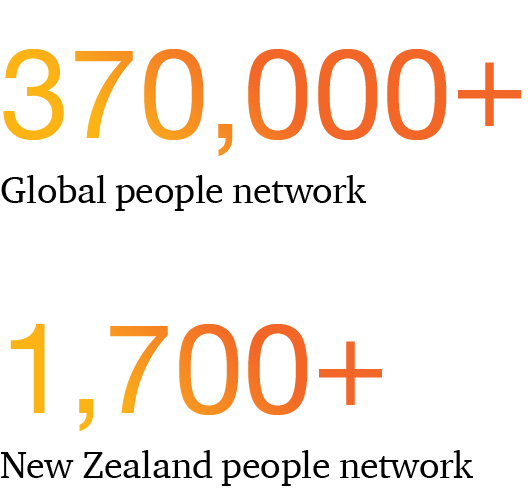Overseas investment regulations Overseas investment
New Zealand's foreign direct investment framework stands out as one of the most complex among OECD nations. Under the current framework, while not all overseas investments require regulatory approval, those involving "sensitive land" or "significant business assets" are subject to detailed screening under the Overseas Investment Act 2005 (OIA) and associated regulations.
The Government has, on 13 February 2025, announced its “Going for Growth” agenda to accelerate the New Zealand economy. Through this, it is taking steps to enable and encourage investment into New Zealand including through changes to attract more high quality foreign direct investment into New Zealand. As part of this, the Government has ntroduced the Overseas Investment (National Interest Test and Other Matters) Amendment Bill 2025 (the Bill).
The reforms in the Bill broadly encompass three key aspects:
- Update the purpose of the regime to recognise the role of overseas investment in increasing economic opportunity by enabling the timely consent of less sensitive investments through an initial national interest risk assessment.
- Introduce a fast-tracked and consolidated consent process
- Farmland, fishing quota and residential land will continue to be screened under the existing regime to recognise their special status
The Bill is currently before Parliament and is expected to be passed by the end of 2025, and the new regime implemented by early 2026. Pending the implementation of the new regime, we have outlined the regulatory landscape as at the date of publication of this guide.
Overseas investment regulations Application
Regulator
The Overseas Investment Office (OIO) oversees the overseas investment regime and assesses applications.
Pathway
There are different application pathways for consent depending on the transaction. Each consent pathway requires the investor to submit a detailed application in a prescribed format and pay a filing fee.
Fees
The filing fees can range between NZ$33,600 to NZ$141,900 depending on the type and complexity of the transaction. The new reforms will likely impact the filing fee structure.
Timing
OIO’s timeframes for the assessment of an application for consent will vary depending on the type of investment and consent pathway. Statutory timeframes can range between 35 working days (for significant business assets) to 70 working days (for certain types of land) and 100 working days (for farm land). In April 2024, as part of a new Ministerial Directive Letter issued by the Government, the OIO was directed to decide 80% of all consent applications within half of the relevant statutory timeframe. We have seen significant improvement in processing timeframes with the OIO since that Ministerial Directive Letter was issued, with the OIO meeting or exceeding these targeted processing timeframes.
Under the new reforms, the OIO must grant consent for screened assets (other than farmland, fishing quota and residential land) within 15 working days unless there are reasonable grounds to consider that a risk to national interest exists, which should further improve decision times for most consents.
Given the complexity of the overseas investment regime, assessment timeframes for a consent application and the filing and legal costs of obtaining consent, it is important to engage specialised advisers early and factor in the impact of the regime into your transaction strategy.
Overseas investment regulations Overseas person
An overseas person broadly includes an entity that is incorporated outside of New Zealand, and any person who is not a New Zealand citizen or ordinarily resident in New Zealand.
The definition also captures any entity in which overseas persons have more than 25% ownership or influence, unless the entity is listed.
In the case of a listed entity, the entity will not be an overseas person if overseas persons own less than 50% of their securities, and overseas persons with 10% or more of its securities do not collectively control more than 25% of the total securities or 50% or more of the board of directors.
Even where a transaction takes place outside of New Zealand, if it involves New Zealand assets down-stream (or where a target business has interests in “sensitive land” in New Zealand - which can include leasehold interests), OIO consent may still be required. Where any New Zealand assets or land interests are involved, investors should make an early assessment of whether OIO consent is required.
Overseas investment regulations Significant business assets
An investment in significant business assets includes:
- The acquisition of more than 25% interest in a business (or the increase of an existing stake over certain control thresholds) where the consideration paid for the New Zealand part of the investment exceeds NZ$100 million
- The acquisition of more than a 25% interest in a business (or the increase of an existing stake over certain control thresholds) where the value of the New Zealand assets exceed NZ$100 million
- The establishment of a business in New Zealand where the total expenditure expected to be incurred in establishing the business exceeds NZ$100 million
- The acquisition of property (including goodwill and other intangible assets) where the consideration paid exceeds NZ$100 million
Investors from certain countries with trading arrangements with New Zealand will benefit from elevated monetary thresholds, rather than the default NZ$100 million threshold listed above. For instance, the NZ$100 million threshold increases to:
- NZ$200 million for certain non-government investors from member countries/separate customs territories to international agreements1
- NZ$650 million for certain Australian non-Government investors for the year to 31 December 2025 (subject to annual adjustment)
Overseas investment regulations Sensitive land
Sensitive land comprises certain types of land prescribed in regulations and includes:
- Large non-urban areas: Non-urban land areas greater than five hectares (including farm land)
- Residential land: Land that has a property category of ‘residential’ or ‘lifestyle’ on the District Valuation Roll (Note: Investors from Australia or Singapore may be exempt if land is not otherwise sensitive)
- Other land: Land of certain sizes either comprising or adjoining land of particular significance (e.g. marine and coastal areas, lakebed, or land listed as a reserve, of historical significance, held for conservation purposes, or set apart as Māori reservation)
- Islands: Land located on certain specified islands greater than 0.4 hectares
An investment in sensitive land includes:
- Purchasing freehold land
- Acquisition of a long-term leasehold interest (three years or more for residential land; ten years or more for non-residential land)
- Acquisition of a more than 25% interest (or the increase of an existing stake over certain control thresholds) in an entity that owns or controls sensitive land

Solar and wind energy farm developments
Solar and wind projects typically require OIO consent for an overseas investor to acquire interests in the sensitive land (including farm land) required to develop the solar or wind farm.2 Although solar and wind farms usually involve similar types of land (particularly farm/rural land), there are some differences between them that are pertinent to the overseas investment regime.
Easements are typically exempted interests under the OIO regime, and so consent is not required. This is particularly relevant for wind farm developers who have a relatively small footprint on larger land areas and there is also usually limited disruption to the landowner’s enjoyment and control of the land. Many wind farm developers have successfully relied on easements for their projects and have not required consent for overseas investment in sensitive land.
However, the rights required by a developer of a large scale solar farm tend to be more extensive in terms of land area used and as such the OIO usually takes the view that they are not suitable to be considered an easement. Regardless of whether the arrangement is described and documented as an easement, if in substance and practice the rights required over land are more extensive than those typically granted in easements, then consent will be required for overseas investment in sensitive land.
Overseas investment regulations Consent criteria
When considering an application for consent, in general, all investors must satisfy the “investor test” which is a bright line test as to certain character and capability factors. These factors include (among others) convictions and corporate fines, ineligibility to come to New Zealand, penalties for tax avoidance or evasion and unpaid tax of NZ$5 million or more.
Special rules apply to different types of investments. These are detailed in the OIA and associated regulations and investors should obtain specialised advice to determine the relevant pathway to consent.
Sensitive land: Where an investment involves land that is sensitive (for reasons other than being residential land), the investor must demonstrate the benefit that the proposed investment brings to New Zealand. This may relate to economic benefit, environmental benefit, public access, protection of historic heritage, advancing significant Government policy, and/or consequential benefits that do not fit within one of the other factors.
Fresh or seawater areas: If the land is or includes fresh or seawater interests, the investor must notify the New Zealand Government. The New Zealand Government has the first right of refusal to acquire the land.
Forestry assets: Different statutory tests apply in the consenting process for investing in forestry assets. This includes the acquisition of forest land (being land over five hectares devoted principally to forestry) and the acquisition of forestry rights over 1,000 hectares per calendar year.
Residential land to live in: Special consent pathways apply for investors looking to acquire residential property to live in. Australian and Singaporean investors do not need OIO consent to invest in residential land (that is not otherwise sensitive land).
Investing in residential land to develop: Investors who are looking to “build to rent” (broadly involving the development of 20 or more new residential dwellings on residential land) may be able to apply under a special streamlined test for consent.
Overseas investment regulations Farm land
Farm land carries significant cultural and economic value in New Zealand and there are special rules in place for overseas investments in farm land. Farm land is defined as land that is, at the time of the consent application, used exclusively or principally for:
- Agricultural purposes - this covers growing crops and raising livestock
- Horticultural purposes - activities like managing orchards, vineyards and growing in glasshouses or hydroponic systems
- Pastoral purposes - grazing livestock is included
Land that is principally or exclusively used for forestry is not considered farm land, and special rules apply to investment in forestry.
How the land might be used in the future, for example for urban development, does not alter the land’s status as farm land.
Farm land must be advertised on the open market before any overseas person enters into an agreement to acquire farm land (which can include a binding term sheet). This advertising requirement is intended to provide New Zealand persons with sufficient opportunity to acquire the farm land. In some circumstances, it is possible to obtain an exemption from this advertising requirement.
Solar farm developments
Solar farm developments typically involve farm land. In most cases, investors require a period of due diligence to confirm the suitability of the site for development. The OIO has recognised the commercial risk to an investor of complying with the requirement to advertise the farm land before a transaction is entered into. A number of solar investors have been granted an exemption from the farm land advertising requirement.

Overseas investors must demonstrate that the proposed investment will, or is likely to, bring “substantial” benefit to New Zealand. This is a higher threshold than required for other types of sensitive land.
When assessing the benefit of the investment to New Zealand, the economic benefit factors (i.e. the creation or retention of jobs, introduction of technology or business skills, increased export receipts, and increased processing of primary products benefit factors) and oversight and participation of New Zealanders are given high relative importance for farm land.
Given the special status of farm land, the proposed reforms coming into force in late 2025 will not provide a fast-track or consolidated pathway to obtain OIO consent for farm land.
An application for exemption from farm land advertising requirements should generally be made in advance of an application for OIO consent. It is important to factor this into timeframes in any investment in farm land.
Overseas investment regulations Build-to-rent
In February 2025, the Government passed new legislation to support foreign investment to build large-scale rental housing developments. This new legislation streamlines the process for investment in a project to construct a new development, or acquire an existing development.
The new legislation also allows for an overseas investor to apply for standing consent before the investor has identified the specific property to acquire. A standing consent covers a predetermined number of transactions which must be completed within a specified period of time, and means that separate consent does not need to be obtained for each acquisition.
Overseas investment regulations National interest assessment
Certain transactions that require OIO consent may be subject to a further national interest assessment by the Minister of Finance. While this assessment is only mandatory for transactions which meet certain criteria, the Minister has the discretion to call in any transaction to be subject to the national interest assessment.
The national interest assessment is mandatory where:
- the investment would result in non-NZ government investors acquiring more than 25% ownership or control interest in the target business; or
- the investment involves land or assets used for “strategically important business”. Strategically important business is defined in detail in the OIA and associated regulations, and broadly includes:
- critical direct suppliers to an intelligence or security agency
- businesses involved in military or dual-use technology
- ports or airports
- electricity, water, or telecommunications businesses
- important financial institutions, or organisations involved in financial market infrastructure
- media businesses with significant impact
- businesses involved in an irrigation scheme
- businesses with access to data sets of sensitive information relating to 30,000 or more individuals
If an overseas person is investing in a strategically important business, even where consent is not required, the investor may be required to notify the OIO of the transaction (in many cases, regardless of value or the extent of the interest being acquired).
Some investors may be able to voluntarily notify the transaction, and if they obtain OIO clearance from this notification, this clearance will operate as a “safe harbour” from future challenge from the OIO. If a transaction is not notified, the OIO could call in the transaction at a later time to assess the potential risk to New Zealand’s national security or public order.
Under the new reforms
Under the new Bill the core tests under the regime (investor test, benefit to New Zealand test and the national interest test) will be consolidated to a single national interest consent pathway.
Under this new pathway, the only relevant test is the new national interest test. Under the new national interest test, the OIO will undertake an initial risk assessment to quickly identify and grant consent to low-risk transactions within 15 working days. This would allow investment to proceed unless a national interest risk is identified. If, during this process, a national interest risk is identified, the transaction will be escalated to a more fulsome national interest assessment.
Note that farm land, fishing quota and residential housing will remain subject to the existing screening regime.
Overseas investment regulations Breach
It is an offence under the OIA to give effect to an investment without obtaining the required OIO consent or to take steps to evade or circumvent the operation of the OIA. A person who breaches the OIA may be liable to a range of civil penalties and criminal fines (for instance, penalties of up to NZ$500,000 for individuals and up to NZ$10 million or three times quantifiable gain for businesses).
The OIO has a range of enforcement powers available in the case of breach or non-compliance with any condition attached to a consented transaction, including applying for court orders to require the investor to dispose of assets and property.
1 Australia; Brunei; Canada; Chile; China; Japan; Mexico; Singapore; Taiwan; The Republic of Korea; and Vietnam
2 OIO consent will also be required for the acquisition of significant business assets (regardless of whether sensitive land is involved or not) if the cost of development or the consideration exceeds NZ$100 million (or higher threshold as relevant).











